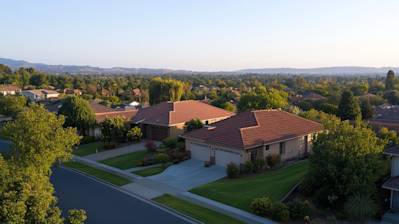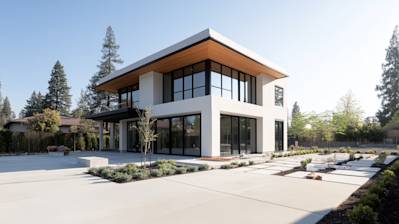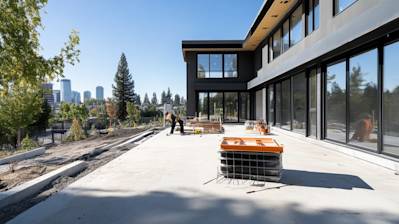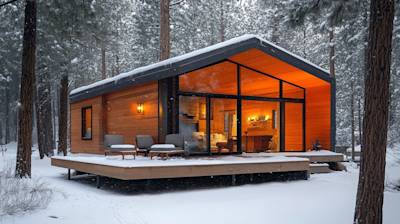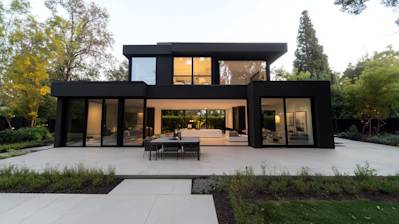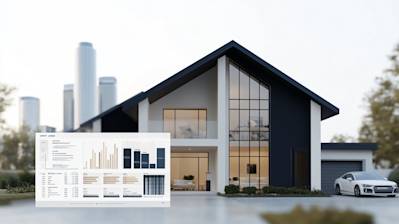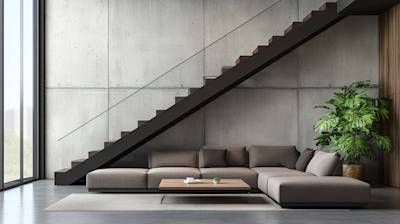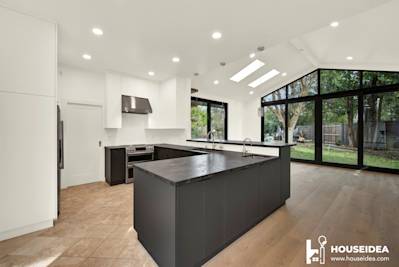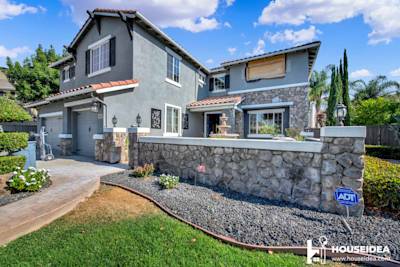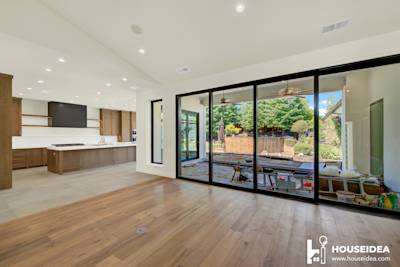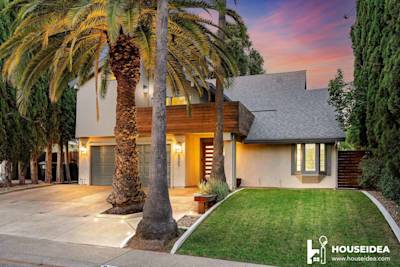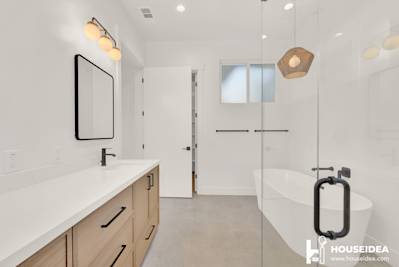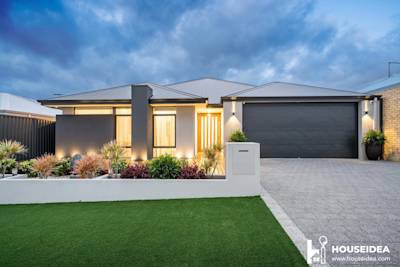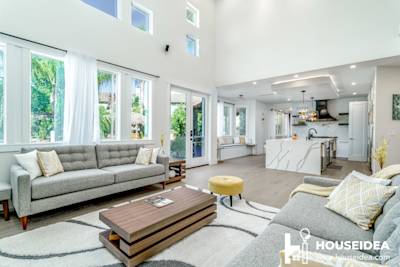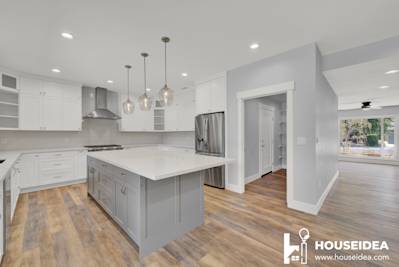Building a custom home can be one of the most rewarding projects you can undertake. But, understanding the intricate details of the timeline can help you navigate the process more easily.
Initial Planning Phase
At the beginning of the custom home building journey, understanding your budget, style, and needs is key.
- Understanding your budget: Determine how much you're willing and able to spend on your custom home. This will significantly influence the home's size, design, and finishes.
- Establishing your style: What type of home do you envision? Different styles will influence your timeline, from modern to traditional or anything in between.
- Identifying needs: How many rooms do you need? Will you need special accommodations like disability-friendly features?
Hiring a Home Building Team
Once your initial planning phase has been completed, it's time to gather your team. This will typically include:
- Architect
- Interior designer
- Landscape Architect
- General contractor
Remember, it's crucial to hire professionals who are experienced in custom homes as they are different from standard housing developments. This phase typically takes 1-2 months.
Design and Pre-construction Phase
Subsequent to the hiring process, the design of your dream house begins.
Architectural Drawings
An architect will take roughly 2-6 months drawing up detailed renderings of your home. This includes drawing out floor plans and elevations based on the details and inputs you provide.
Approvals and Permits
After completing the architectural drawings, it’s time to get them approved by the local authorities. Depending on your location, this process can take anywhere from 1-6 months.
Construction Phase
The construction phase is the most exciting yet time-consuming part of the custom home building timeline.
Site Preparation
Before construction begins, the building site must be prepped. This may involve clearing vegetation or leveling the terrain, which typically takes up to a month.
Foundation
The foundation is arguably the most vital part of the building process. Depending on the climate, size, and type of your house, this can take anywhere from one week to almost a month.
Framing Phase
Once the foundation is set, the next phase involves putting up the skeleton of your home. Depending on the complexity of your house, this process can take 1-2 months.
Installation and Finishing
Post the framing phase, installing electricity, plumbing, heating, and air conditioning systems takes place. Post these installations, walls and roof go up, followed by floors. This phase can take an additional 2-3 months.
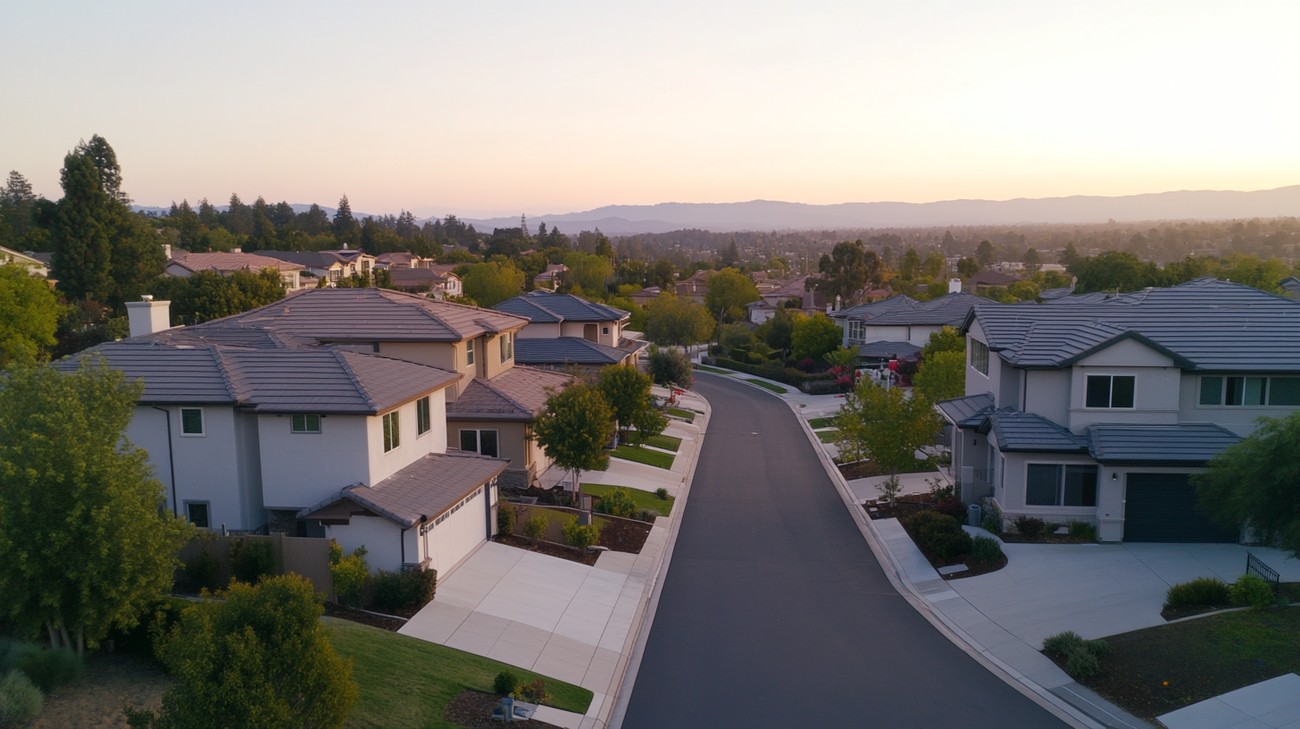
Frequently Asked Questions about Timeline To Build A Custom Home
Does the timeline for building a custom home differ from place to place?
Yes, it can. The timeline for building a custom home can vary depending on the location and the specific regulations of that area. Certain places may have more stringent building codes or environmental regulations that can potentially extend the construction timeline.
How can weather affect the timeline to build a custom home?
Weather is a significant factor in home construction timelines. Bad weather can delay many aspects of construction from foundation laying, framing, to exterior finishing. Inclement weather like heavy rain, high winds, and cold temperatures can hinder work both in safety and effectiveness.
What are the stages in the timeline to build a custom home?
Typically, the timeline to build a custom home is divided into several stages starting with planning, which includes blueprint designing and obtaining necessary permits. Then, the construction phase begins with site preparation, foundation, framing, installation of windows and doors, roofing, siding, and interior and exterior finishing. Lastly, comes the inspection and the final walk-through stages.
How much of the timeline is dedicated to pre-construction?
Pre-construction, which includes planning, design, and obtaining necessary permits, can take several months of the construction timeline. This phase is crucial as it lays the groundwork for your entire project. Homeowners should dedicate a significant amount of time to this phase to ensure a smooth construction process.
What factors can speed up the timeline of building a custom home?
Hiring experienced and efficient professionals, having a thorough and detailed plan from the onset, and making prompt decisions regarding materials and finishes can help speed up your custom home construction. Furthermore, building in favorable weather conditions can also expedite the process.
Can changes in my home design affect the custom home build timeline?
Yes, any modifications in architectural design or structural adjustments to the original plan can potentially prolong the construction time. To keep your timeline and budget on track, it’s advisable to finalize the design before the construction begins.
Are there any unforeseen factors that can delay the timeline?
While a professional builder will provide a projected timeline, delays may still occur due to unforeseen circumstances like backordered materials, subcontractor schedules, building inspection delays, or unforeseen site conditions. It's important to account for potential delays in your timeline.
What role does an architect play in the timeline to build a custom home?
In the timeline to build a custom home, an architect plays a significant role. From creating blueprints and floor plans to ensuring building code compliance, the pace and efficiency of an architect’s work can considerably affect the timeline.

Pros of Timeline to Build a Custom Home
A Clear Roadmap
One of the significant advantages of having a timeline to build a custom home is it provides a clear roadmap for the project. By setting a timeline, you are able to track the progress of the construction and ensure all activities are running on schedule. It provides transparency as to what to expect at every stage of the build.
Better financial planning
When you have a timeline, you're better positioned to plan your finances. Construction costs can vary depending on the time taken to complete it. A timeline gives you an idea of when certain expenses will be needed, helping you manage your budget effectively.
Effective Communication with Contractors and Stakeholders
A timeline provides a standardized reference point for discussions with contractors and any other stakeholders involved in the construction of your home. Contractors can provide updates and feedback based on the predetermined timeline, which can remove ambiguity and allow you to address any concerns or issues promptly.
Time Management
A timeline can reduce unnecessary time delays in building your custom home. By having a pre-planned schedule, you can ensure the builders, suppliers, and any other people involved work according to a fixed plan. This can avoid situations where builders are idle due to lack of materials or vice-versa. Both of these scenarios can lead to unwanted delays and increased costs.
Proof of Progress
The construction of a home can feel like a never-ending project. With a timeline, you have a visible tool that shows you how much has been completed and what is left to be done. This gives you a sense of progress and accomplishment as you cross off completed tasks, keeping you motivated throughout the process.
Cons of a Timeline to Build a Custom Home
Unexpected Delays
Despite having a detailed timeline for your custom home construction, unexpected delays can be a common occurrence. This can be due to a variety of reasons such as unexpected weather conditions, difficulty in sourcing materials, or breakdowns in communication. These delays can disrupt your timeline and make it challenging to stay on track.
Increased Pressure
A set timeline can sometimes lead to increased pressure for both you and the contractors. If there are unexpected issues or delays, it may lead to hurried decision-making or rushed work to stay on track with the timeline. This can sometimes result in errors or substandard work.
Need for Constant Monitoring and Updates
While a timeline can offer a good roadmap, it's not a static document. As your project progresses, you may find that adjustments need to be made to the schedule. This means you or your project manager will need to continually monitor and update the timeline, which can be time-consuming.
Unrealistic Expectations
A timeline is a plan based on estimates and hopeful deadlines. It can sometimes create unrealistic expectations about when the project will be completed, especially if it does not account for unexpected issues or delays. When the build falls behind schedule, this can lead to disappointment and stress.
Locks You into a Certain Plan
Once a timeline is created and building commences, it can be challenging to make changes to the plan. If you decide you want to make alterations or additions to your home's design, it might disrupt the timeline and increase the overall construction time and cost.
Costs Can Escalate
While a timeline helps in planning your finances, if the project extends due to unexpected delays or modifications, the overall cost of the project can increase. You may also incur additional costs if you need to accelerate some parts of the project to get back on schedule.

Myths / Misconceptions about Building a Custom Home
Building a custom home is a dream for many people. Yet, there are a lot of misconceptions tied to the process which often discourage would-be homeowners. Understanding and busting these myths is key to feeling comfortable and confident about your custom build journey. Let's take an in-depth look at them.
Myth 1: Building a Custom Home is Far More Expensive than Buying a Resale Home
Reality:
This is one of the most common misconceptions, and it is not entirely true. Yes, building a custom home can be more expensive, but that's not always the case. It greatly depends on what you want in a home.
If you're looking for a basic, no-frills construction, and the land price is reasonable, then a custom home may actually cost less or at least be competitive with buying an existing one. Moreover, new custom homes often have the benefit of being more energy efficient, saving you on utilities in the long run.
Myth 2: The Timeline to Build a Custom Home is Always Longer
Reality:
While building a custom home can take anywhere from 10 months to 2 years, this myth is not entirely accurate. The timeline largely depends on multiple factors, including the complexity of the design, the efficiency of the builder, weather conditions, and even bureaucratic factors like permit approval times.
At times, the timeline to find and close on an existing home can be quite lengthy, especially in competitive markets. Thus, one cannot definitively claim that building is always the slower route.
Myth 3: I Need a Perfect Credit Score to Build a Custom Home
Reality:
This myth is far from the truth. While having a good credit score can certainly help you get good interest rates on your construction loan, it’s not the only way builders finance new construction.
Some builders offer financing programs, some people pay cash, and sometimes land can be used as collateral to secure a construction loan. While good credit can be beneficial, it's not evidence that you can't build a custom home if your credit score isn't stellar.
Myth 4: Custom Homes Always Have Lavish and Unnecessary Features
Reality:
This isn't necessarily the case. The point of building a custom home is that you get to customize it to your taste, needs, and budget. You have the freedom to choose whether you want a movie theater in your basement or simply just want more closet space in your bedroom. Custom homes are all about personalization and creating a space that suits your lifestyle.
Myth 5: Building a Custom Home is Too Stressful
Reality:
Contrary to this myth, building a custom home can be a thrilling and rewarding endeavor. Yes, there will be decisions to make and pitfalls to navigate, but a good builder will guide and support you throughout the process, taking the weight off your shoulders and turning stress into excitement.
Remember that stress or no stress, the payoff is getting a home that is tailored to your individual needs and tastes.
Myth 6: Building a Custom Home is Bad for the Environment
Reality:
Many believe that custom builds are a drain on resources and are therefore bad for the environment. However, there is plenty of scope to make your custom build quite eco-friendly.
With new construction techniques, sustainable materials, improved insulation, and energy-efficient systems, a custom home could actually be more environmentally friendly than many existing homes. Plus, you can incorporate green elements like solar panels or a rainwater harvesting system right from the start.
Now that you're armed with the truth, the prospect of building your custom home may seem a little less intimidating and rather more exciting!
Summary
So, there's no doubt that the timeline to build a custom home can vary greatly based on numerous factors. From design and permitting to construction phases and unforeseen delays, the process is complex. But regardless of whether it takes six months or two years, the satisfaction of finally taking ownership of your custom-built dream house is immeasurable.
Even though the process seems long, it's largely necessary. Remember, patience is key and good things take time. The timeline to build a custom home you've always imagined won't be achievable overnight. It takes careful planning, thoughtful design, and quality construction. The end result is a home that's uniquely yours, and that makes the extra time well worth the wait.
Lastly, keep in mind that communication, flexibility, and realistic expectations are crucial elements in the home building timeline. Any hiccups along the way can be managed smoothly if everyone involved is kept in the loop. Trust in your building team, understand that delays can happen, and before you know it, you'll be unlocking the front door of your custom home.
About HouseIdea
HouseIdea, based right here in sunny Sacramento, CA, isn't your usual design firm. Picture us as your friendly neighborhood creators, brimming with innovative home design and improvement concepts just waiting to reshape your space. We are passionate about transforming houses into dream homes and making sure they perfectly reflect your unique tastes and lifestyle. We've been proudly serving the Sacramento community with our fine blend of creativity and technical expertise, and are thrilled to continue doing so. Come on in to HouseIdea, we can't wait to bring your ideas to life!
Tags: construction, custom home, project management,



